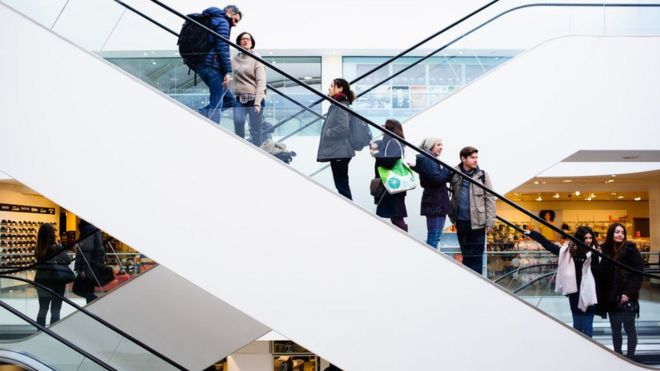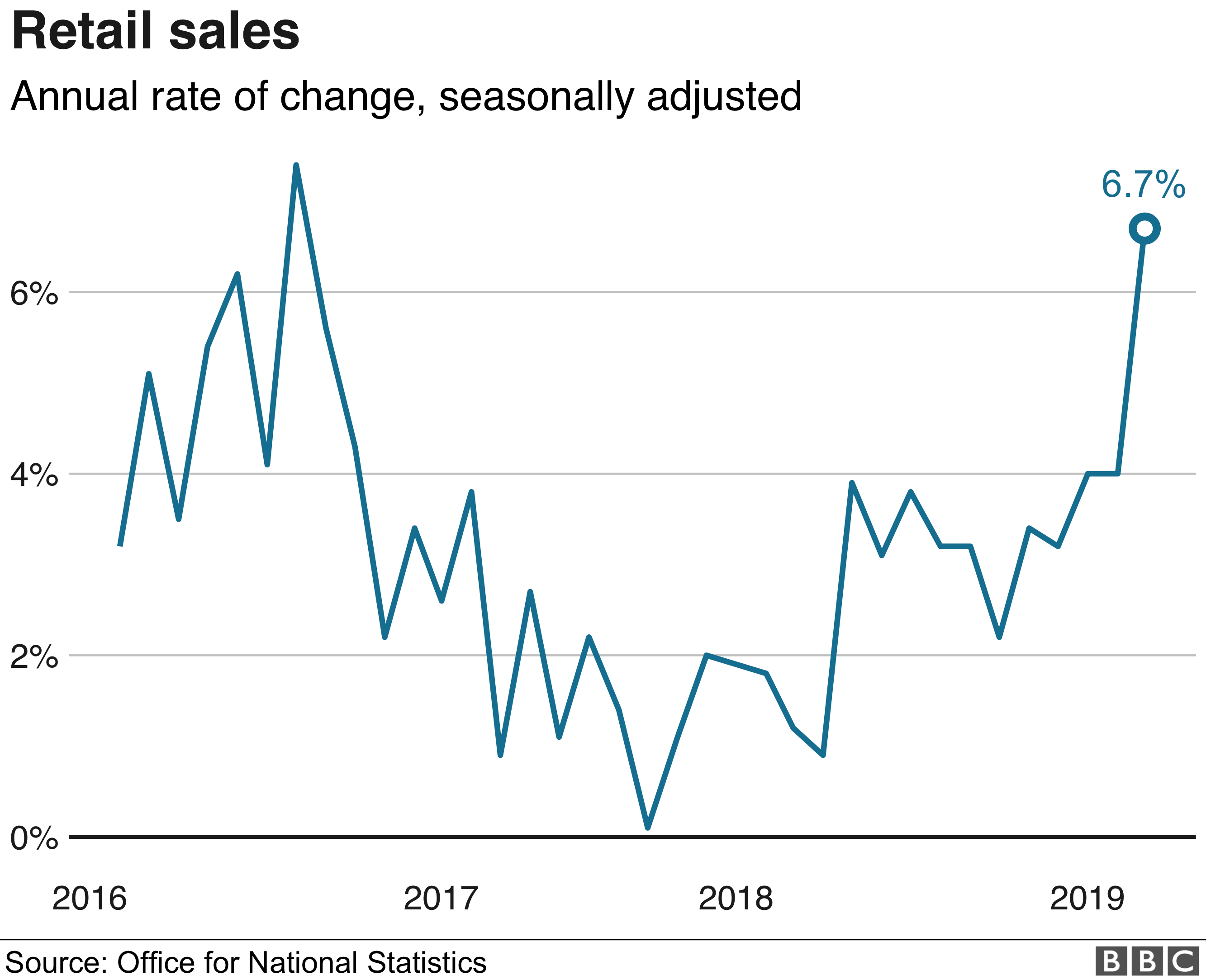 GETTY IMAGES
GETTY IMAGES
Retail sales unexpectedly jumped in March as mild weather enticed shoppers to UK stores.
The Office for National Statistics (ONS) said the year-on-year growth in March was 6.7% - the highest since October 2016.
The ONS said milder weather had helped to boost sales in comparison with the "Beast from the East" last year.
Monthly sales rose 1.1% - economists had been expecting a fall - with the warm weather boosting clothing sales.
Department stores were the only type of stores to report a fall in sales compared with the previous year, seeing a 0.3% decline in March.
The problems facing department stores was illustrated by Debenhams, which entered administration earlier this month before being taken over by its lenders.
In contrast, food stores registered a 3.3% annual rise, and textile, clothing and footwear stores saw a 7.1% increase from a year earlier,
Rhian Murphy, head of retail sales at the ONS, said: "March's mild weather boosted sales, with food shops also recovering after a weak February".
February's month-on-month growth figure was revised up to a rise of 0.6% from 0.4%, which Ruth Gregory, senior UK economist at Capital Economics, said "adds to evidence that the economy grew at a pretty reasonable rate... in the first quarter given the political chaos".
She noted that the ONS adjusted the figures for Easter - the run-up to Easter Sunday fell in the comparable period last year - but that the boost in food sales in March may have been sparked by stockpiling ahead of the original date for Brexit.
Philipp Gutzwiller, head of retail at Lloyds Bank Commercial Banking, said the third consecutive month of increasing sales was good news for retailers as they headed in to the Easter break after a mixed Christmas.
"Those who see drops in reported annual profits as symptomatic of the continued decline of the High Street should look at the contrasting fortunes of some who have sophisticated physical and online presences," he said.

It is the latest data to be released this week, giving clues to the state of the UK economy.
On Tuesday, separate ONS data showed that average weekly earnings, excluding bonuses, rose 3.4% in the three months to February and the unemployment rate was lower than at any time since the end of 1975.
That was followed on Wednesday by figures showing inflation was stable at 1.9% in March.
Ed Monk, associate director for personal investing at Fidelity International, said: "The week's economic releases have ended with good news. Even accounting for the Beast from the East, which kept shoppers at home a year ago, today's retail sales data show households willing to spend more.
"That reflects a slow recovery from a decade-long wage squeeze and, perhaps, a willingness to look through the apparently never-ending uncertainty that is Brexit".
Ms Gregory expects retail sales to provide a boost to GDP in the first quarter, but added: "Of course it is entirely possible that sales will be weaker in the second quarter if no-deal Brexit concerns caused consumers to bring forward purchases in to March".
No comments:
Post a Comment